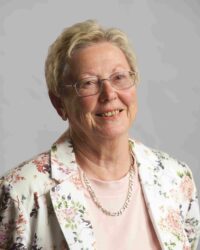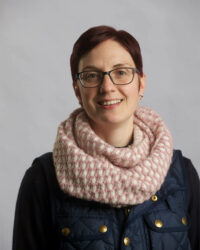SACEMA Course: Applications Closed
Introduction to Epidemiology and Research Methodology April-July 2024
Deadline for applications: 21 March 2024
The course will be held virtually, on the Microsoft Teams platform and takes place over 13 sessions, every Monday from 10h00 – 12h00, starting 15 April 2024.
Course fee: R 5000,00
Course Overview
Epidemiology is broadly defined as the study of the distribution and determinants of health-related states or events in specified populations and the application of this study to the prevention and control of health problems. Encompassing the methods and research designs needed to interpret evidence of health research, epidemiology is not only a discipline of the health sciences in itself, but also a much needed skill for practitioners in other branches of health research.
Epidemiology concentrates on questions like these: What are the determinants, distribution, and frequency of disease? Who gets ill and why? What are the crucial differences between those who become ill and those who do not? (Both sick and healthy people are to be studied.) How effective are interventions in treating disease, and in stopping further spread? How effective are health services in addressing health needs? What information do they need to make decisions? What is the risk assessment, and what is the threshold for action?
The 13 lecture series comprises: Introduction, basic tools; Demographic aspects; Cross-sectional designs; Construction of questionnaires; Case-control studies; Cohort designs, randomised controlled trials; Sampling; Screening and surveillance; Bias in design; Causation; Disease clusters, outbreaks; Hints on writing a research proposal; Hints on writing research papers and constructing conference presentations.
Outcomes
- Understand and correctly apply the basic tools of epidemiology and research
- Identify various research designs, know their uses and limitations
- Understand the basic principles of sampling and apply that knowledge to everyday investigations
- Understand the basics of screening, sensitivity and specificity of tests
- Recognise bias in the design of investigations and try to avoid it
- Understand the epidemiology of disease clustering and outbreaks and how to investigate them
- Be aware of the principles of causation
Be able to report on their findings professionally, both in writing and orally.
Course Presenter

Dr Jo Barnes
Dr Jo Barnes was Senior Lecturer in Epidemiology and Community Health of the Faculty of Medicine and Health Sciences of the University of Stellenbosch at Tygerberg and is now semi-retired. She still presents courses in Epidemiology. She is still involved in research into the health impact and further consequences of pollution from failing sanitation in urban areas and pollution reaching rivers arising from using the water for drinking and irrigation of edible crops and livestock. She has long experience in water monitoring of the Berg and Eerste Rivers. She is a member of various water and conservation related bodies. Under her leadership her students investigated the dwellings and health status of inhabitants of low-cost housing schemes in the City and the impact of lack of sanitation on the urban environment. Other studies investigated the health status of old age pensioners in low income areas and the oral health status of children under 5 years in the Cape metropolitan area. She is an active member of the Disaster Management Forum of the Western Cape. She contributed health chapters for the disaster plans written for the district municipalities of West Coast, Cape Winelands, Uthungulu, Amajuba and the provincial disaster plan for Limpopo. She is a recipient of the Order of the Disa (Member Class) 2007 for meritorious services to the Province of the Western Cape, winner of the Women in Water, Sanitation and Forestry Award 2007 for the category Education and Awareness for awareness created on contamination of rivers, winner of the Cape Times/Caltex Environmental Award 2005 for the research work on contaminations of rivers and recipient of the Faculty of Health Sciences Award for Community Service for 2007.
Co-Presenter

Dr. Larisse Bolton
Dr Larisse Bolton holds a BSc in Chemistry and a PhD in Applied Mathematics from the University of the Free State in Bloemfontein, South Africa. Her postgraduate research focused on the application of mathematical modelling in oncology using different approaches – model adaptation and model construction. She was a postdoctoral research fellow at the South African Centre for Epidemiological Modelling and Analysis (SACEMA) in Stellenbosch from 2018-2021 and now holds the position of Researcher at SACEMA. Her current research focuses on blood systems analysis. She has been assessing blood product usage and demand in South Africa and is developing a predictive model for red blood cell product usage. The model will be used to investigate various scenarios of health system structuring.
Enquiries may be directed to the SACEMA Training Coordinator, Faikah Bruce (faikah@sun.ac.za) or the course co-presenter Dr Larisse Bolton (lbolton@sun.ac.za).

